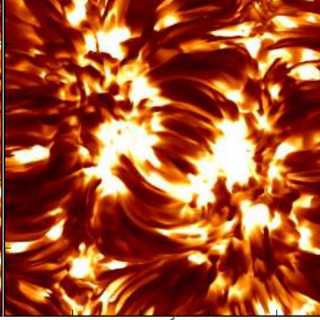Bibcode
Trujillo-Bueno, J.; Štěpán, Jiří; Belluzzi, L.
Bibliographical reference
The Astrophysical Journal Letters, Volume 746, Issue 1, article id. L9 (2012).
Advertised on:
2
2012
Citations
29
Refereed citations
23
Description
The Lyα line of He II at 304 Å is one of the spectral lines
of choice for EUV channels of narrowband imagers on board space
telescopes, which provide spectacular intensity images of the outer
solar atmosphere. Since the magnetic field information is encoded in the
polarization of the spectral line radiation, it is important to
investigate whether the He II line radiation from the solar disk can be
polarized, along with its magnetic sensitivity. Here we report some
theoretical predictions concerning the linear polarization signals
produced by scattering processes in this strong emission line of the
solar transition region, taking into account radiative transfer and the
Hanle effect caused by the presence of organized and random magnetic
fields. We find that the fractional polarization amplitudes are
significant (~1%), even when considering the wavelength-integrated
signals. Interestingly, the scattering polarization of the Lyα
line of He II starts to be sensitive to the Hanle effect for magnetic
strengths B >~ 100 G (i.e., for magnetic strengths of the order of
and larger than the Hanle saturation field of the hydrogen Lyα
line at 1216 Å). We therefore propose simultaneous observations of
the scattering polarization in both Lyα lines to facilitate
magnetic field measurements in the upper solar chromosphere. Even the
development of a narrowband imaging polarimeter for the He II 304
Å line alone would be already of great diagnostic value for
probing the solar transition region.
Related projects

Magnetism, Polarization and Radiative Transfer in Astrophysics
Magnetic fields pervade all astrophysical plasmas and govern most of the variability in the Universe at intermediate time scales. They are present in stars across the whole Hertzsprung-Russell diagram, in galaxies, and even perhaps in the intergalactic medium. Polarized light provides the most reliable source of information at our disposal for the
Tanausú del
Pino Alemán